Strictly Personal
Nigeria as a republic of the future, By Tunji Olaopa
Published
2 years agoon
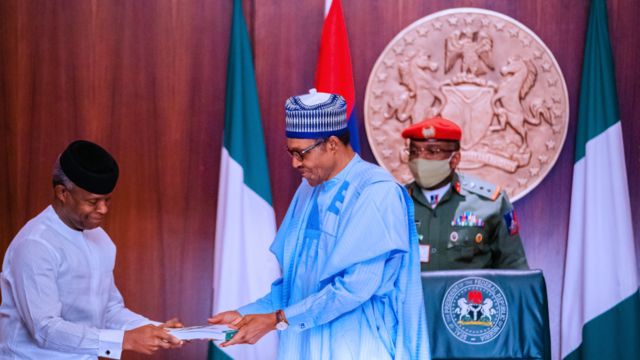
I have deliberately crafted the topic of this piece to link the status of the Nigerian state as a republic to the aspirational desire, embodied within the forthcoming election, of transforming the fortune of the country through a decidedly ideological willpower that aligns the future to a vision of Nigeria. When the electorates go to the poll in all democratic context, that act is symbolic of a desire and yearning to keep drawing the state closer to an ideal. And that is done either through the removal of a leadership that seemed to have fractured that vision or through the election of another who the electorate believed could facilitate the transformation that takes the state closer to an idea of utopia. Abraham Lincoln had something fundamental in mind when he insisted that “You cannot escape the responsibility of tomorrow by evading it today.” And I think William Shakespeare fathomed what that meant when he made Cassius to utter, in Julius Caesar, that “The fault, dear Brutus, is not in our stars/But in ourselves, that we are underlings.” Cassius juxtapose fate and human character and will power to make whatever one wills to happen.
The historical evolution, developmental trajectory and future possibilities of the Nigerian state are not in our stars (which is evidently divinely enabled in more than equal measure), but in our determination to transform the limitations and resources of the state into a policy architecture, national value capital and productivity framework that make life worth living for Nigerians. And since independence, Nigeria, through its consecutive governments, has been reaching for that ideal of a developmental state that is capable and efficient, without ever achieving it. I am not sure if the situation of ancient Athens was worse or not, as historical comparisons have their limitations and utility. However, we have evidence that the democratic experiment had decayed so badly in Athens that the leadership no longer saw the significance of a critical citizenry in what Socrates and his interlocution meant to achieve. Socrates had to die for tyranny to keep reigning.
In 1963, Nigeria became a republic. Over the cause of its conceptual trajectory, the meaning of the republic has shifted, first, from any government defined around the idea of the common good to a form of government where the leadership is procedurally elected according to constitutional imperatives. This differentiates a republic from a hereditary monarchy. In contemporary times, a republic is a democratic government where sovereignty lies with the people who then govern through their representatives. It is in this sense that Nigeria declared herself a republic to claim the possibility of translating the wish of Nigerians into a solid policy architecture that produces tangible development results. From the first republic to the fourth, the Nigerian governments have been straining at the governance and development equation without many significant successes.
Three out of the four republican experiments were taken over by military rule. The experimentation with democratic governance began all over again in 1999, and so far, it has been turbulent as all Nigerians know.
When Plato, the Greek philosopher, began writing his magnus opus, Republic, it was a work motivated by disillusionment and hope in equal measure. Socrates, his teacher, had been killed and the democratic experiment was in freefall. The death of Socrates, for Plato, was the final death knell about the corrupt tendencies of democracy. So, if democracy could preside over the unjust killing of someone like Socrates, Plato argued, there is then a need for another government, an ideal one, that will take justice seriously. And so, Plato began crafting the contours of an ideal society that has the capacity to facilitate the good life through good politics. Plato’s Republic is a fundamental act of reformist social re-engineering. From the guardians who have the reflective capacity, in the mold of the philosophical king, to the educational system that generates them and others, who properly situated, according to the law of justice to render service, transforms the Republic to become the site of good governance.
- S. Eliot was perceptive when he insisted that “There is no absolute point of view from which real and ideal can be finally separated and labelled.” The real and the ideal are coterminous. We move to the ideal from the perspective of the real. Or, what is the same thing: the ideal is what enables the strategic re-construction of the real. This is what gave birth to Plato’s Republic. And if we contend that Plato wrote about a utopia, then we can counter that it is the vision of the utopia that precede the emergence of the real. The House of Maktoum saw Dubai from the lofty core of a vision. Even the name of the city, from the Arab proverb, “daba dubai”, speaks about the influx of money. And consistently for many decades, this vision passed through the strategic and focused policymaking architecture of this family until Dubai arrived as a site of governance wonder out of the shape of a mere village.
The Nigerian republic was equally preceded by several visions. As part of the founding negotiators of the Nigerian state, Chief Obafemi Awolowo was equipped with both the historical, political and philosophical sagacity to assess and reflect on the past and future of the Nigerian state. This is what he did in The People’s Republic. It is a serious and strategic act of vision that locates Nigeria’s present in a critical assessment of her colonial past, and envisioned a vision that subordinates Nigeria’s greatness to upholding the social contract in a true service to Nigerians. For Awolowo, the Nigerian constitution constitutes the institutional framework for reconstructing the Nigerian state. It is the constitution that outlines the framework for ordering a good society. The constitution encodes the blueprint by which the leadership desires, through policy initiatives, to keep rearticulating the direction of a state. The anomalies that Awolowo saw in the first instantiation of the Nigerian republic has become aggravated over the next three instantiations. Even the democratic experiment has not been able to erase the deep ethnonational and institutional cleavage that make divisiveness and underdevelopment possible.
This, perhaps, demonstrates the essential basis for restructuring the Nigerian state. Unlike the vast desert of the Dubai, Nigeria began life as an amalgamated territory. With independence, the plurality that defines Nigeria, as a mere geographical expression, rather than be federalized to facilitate the belongingness of the diverse constituents, was through bad policy unitarized into a centralized entity supposedly operating a federal constitution. This constitutional lopsidedness has been the source of many institutional and governance aberrations. Nigeria’s monocultural economy, for instance, draws strength from crude oil to centralize Nigeria’s wealth and kill regional innovation and initiatives. It swallowed the cocoa plantations of the southwest, the groundnut pyramids of the north and the coal industries of the east. Restructuring the federation simply means making it more constitutionally possible to allow for the comparative advantages of each geopolitical zone to manifest in advancing the governance possibilities of Nigeria.
Even more critical to the constitutional restructuring is the need to empower local governance into a developmental mode. Within the unitary dynamic of Nigeria’s federal constitution, the local governments have become comatose in developmental terms. As is, no local government can supervise grassroots governance in Nigeria. It is that bad. The exclusive and concurrent lists of the constitution have emasculated the residual list and taken the developmental and democratic initiatives out of the reach of the local governments. The exclusive list contains sixty-eight items.
The concurrent list, powers shared by the federal and state governments, further decimate the capacity of the local governments.
You may like
-
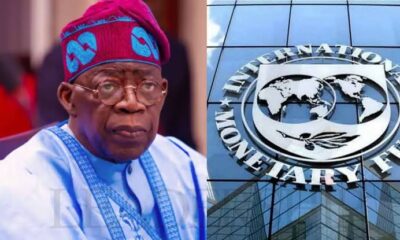

Tinubu’s reforms in Nigeria not working— IMF
-


EU launches initiative to reintegrate over 417,661 out-of-school children in Nigeria
-


1,172 Nigerians killed, over 1,000 kidnapped in nine months— NHRC
-
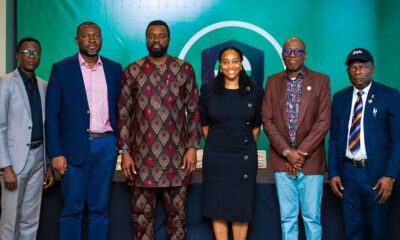

Bolt invests $107m in Nigeria to boost safety standards
-
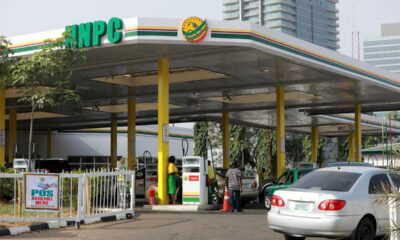

After decades of imports, Nigeria ends oil importation
-
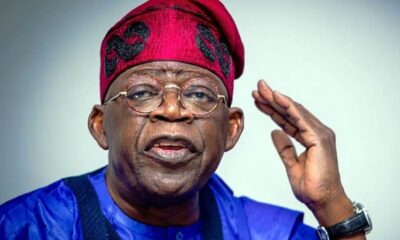

Nigerian journalist claims US govt filing confirms Tinubu as ‘CIA Agent’
Strictly Personal
African Union must ensure Sudan civilians are protected, By Joyce Banda
Published
3 weeks agoon
October 25, 2024
The war in Sudan presents the world – and Africa – with a test. This far, we have scored miserably. The international community has failed the people of Sudan. Collectively, we have chosen to systematically ignore and sacrifice the Sudanese people’s suffering in preference of our interests.
For 18 months, the Rapid Support Forces (RSF) and the Sudanese Armed Forces (SAF) have fought a pitiless conflict that has killed thousands, displaced millions, and triggered the world’s largest hunger crisis.
Crimes against humanity and war crimes have been committed by both parties to the conflict. Sexual and gender-based violence are at epidemic levels. The RSF has perpetrated a wave of ethnically motivated violence in Darfur. Starvation has been used as a weapon of war: The SAF has carried out airstrikes that deliberately target civilians and civilian infrastructure.
The plight of children is of deep concern to me. They have been killed, maimed, and forced to serve as soldiers. More than 14 million have been displaced, the world’s largest displacement of children. Millions more haven’t gone to school since the fighting broke out. Girls are at the highest risk of child marriage and gender-based violence. We are looking at a child protection crisis of frightful proportions.
In many of my international engagements, the women of Sudan have raised their concerns about the world’s non-commitment to bring about peace in Sudan.
I write with a simple message. We cannot delay any longer. The suffering cannot be allowed to continue or to become a secondary concern to the frustrating search for a political solution between the belligerents. The international community must come together and adopt urgent measures to protect Sudanese civilians.
Last month, the UN’s Independent International Fact-Finding Mission for Sudan released a report that described a horrific range of crimes committed by the RSF and SAF. The report makes for chilling reading. The UN investigators concluded that the gravity of its findings required a concerted plan to safeguard the lives of Sudanese people in the line of fire.
“Given the failure of the warring parties to spare civilians, an independent and impartial force with a mandate to safeguard civilians must be deployed without delay,” said Mohamed Chande Othman, chair of the Fact-Finding Mission and former Chief Justice of Tanzania.
We must respond to this call with urgency.
A special responsibility resides with the African Union, in particular the AU Commission, which received a request on June 21 from the AU Peace and Security Council (PSC) “to investigate and make recommendations to the PSC on practical measures to be undertaken for the protection of civilians.”
So far, we have heard nothing.
The time is now for the AU to act boldly and swiftly, even in the absence of a ceasefire, to advance robust civilian protection measures.
A physical protective presence, even one with a limited mandate, must be proposed, in line with the recommendation of the UN Fact-Finding Mission. The AU should press the parties to the conflict, particularly the Sudanese government, to invite the protective mission to enter Sudan to do its work free from interference.
The AU can recommend that the protection mission adopt targeted strategies operations, demarcated safe zones, and humanitarian corridors – to protect civilians and ensure safe, unhindered, and adequate access to humanitarian aid.
The protection mission mandate can include data gathering, monitoring, and early warning systems. It can play a role in ending the telecom blackout that has been a troubling feature of the war. The mission can support community-led efforts for self-protection, working closely with Sudan’s inspiring mutual-aid network of Emergency Response Rooms. It can engage and support localised peace efforts, contributing to community-level ceasefire and peacebuilding work.
I do not pretend that establishing a protection mission in Sudan will be easy. But the scale of Sudan’s crisis, the intransigence of the warring parties, and the clear and consistent demands from Sudanese civilians and civil society demand that we take action.
Many will be dismissive. It is true that numerous bureaucratic, institutional, and political obstacles stand in our way. But we must not be deterred.
Will we stand by as Sudan suffers mass atrocities, disease, famine, rape, mass displacement, and societal disintegration? Will we watch as the crisis in Africa’s third largest country spills outside of its borders and sets back the entire region?
Africa and the world have been given a test. I pray that we pass it.
Dr Joyce Banda is a former president of the Republic of Malawi.
Strictly Personal
Economic policies must be local, By Lekan Sote
Published
3 weeks agoon
October 24, 2024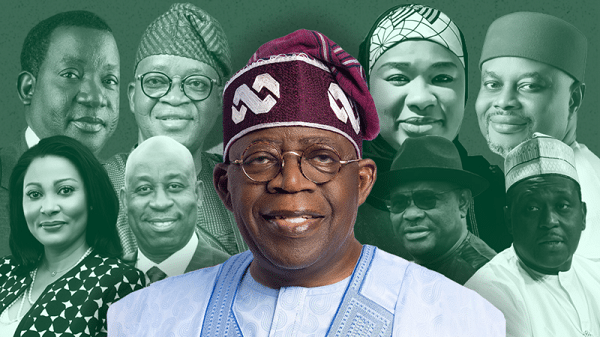
With 32.70 per cent headline inflation, 40.20 per cent food inflation, and bread inflation of 45 per cent, all caused by the removal of subsidies from petrol and electricity, and the government’s policy of allowing market forces to determine the value of the Naira, Nigerians are reeling under high cost of living.
The observation by Obi Alfred Achebe of Onitsha, that “The wellbeing of the people has declined more steeply in the last months,” leads to doubts about the “Renewed Hope” slogan of President Bola Tinubu’s government that is perceived as extravagant, whilst asking Nigerians to be patient and wait for its unfolding economic policies to mature.
It doesn’t look as if it will abate soon, Adebayo Adelabu, Minister of Power, who seems ready to hike electricity tariffs again, recently argued that the N225 per kilowatt hour of electricity that Discos charge Band A premium customers is lower than the N750 and N950 respective costs of running privately-owned petrol or diesel generators.
While noting that 129 million, or 56 per cent of Nigerians are trapped below poverty line, the World Bank revealed that real per capita Gross Domestic Product, which disregards the service industry component, is yet to recover from the pre-2016 economic depression under the government of Muhammadu Buhari.
This has led many to begin to doubt the government’s World Bank and International Monetary Fund-inspired neo-liberal economic policies that seem to have further impoverished poor Nigerians, practically eliminated the middle class, and is making the rich also cry.
Yet the World Bank, which is not letting up, recently pontificated that “previous domestic policy missteps (based mainly on its own advice) are compounding the shocks of rising inflation (that is) eroding the purchasing power of the people… and this policy is pushing many (citizens) into poverty.”
It zeroes in by asking Nigeria to stay the gruelling course, which Ibukun Omole thinks “is nothing more than a manifesto for exploitation… a blatant attempt to continue the cycle of exploitation… a tool of imperialism, promoting the same policies that have kept Nigeria under the thumb of… neocolonial agenda for decades.”
When Indermilt Gill, Senior Vice President of the World Bank, told the 30th Summit of Nigeria’s Economic Summit Group, in Abuja, Federal Capital Territory, that Nigerians may have to endure the harrowing economic conditions for another 10 to 15 years, attendees murmured but didn’t walk out on him because of Nigerian’s tradition of politeness to guests.
Governor Bala Muhammed of Bauchi State, who agrees with the World Bank that “purchasing power has dwindled,” also thinks that “these (World Bank-inspired) policies, usually handed down by arm-twisting compulsions, are not working.”
What seems to be trending now is the suggestion that because these neo-liberal policies do not seem to be helping the economy and the citizens of Nigeria, at least in the short term, it would be better to think up homegrown solutions to Nigeria’s economic problems.
Late Speaker of America’s House of Representatives, Tip O’Neill, is quoted to have quipped that, at the end of the day, “All politics is local.” He may have come to that conclusion after observing that it takes the locals in a community to know what is best for them.
This aphorism must apply to economics, a field of study that is derived from sociology, which is the study of the way of life of a people. Proof of this is in “The Wealth of Nations,” written by Adam Smith, who is regarded as the first scholar of economics.
In his Introduction to the Penguin Classics edition of “The Wealth of Nations,” Andrew Skinner observes: “Adam Smith was undoubtedly the remarkable product of a remarkable age and one whose writing clearly reflects the intellectual, social and economic conditions of the period.”
To drive the point home that Smith’s book was written for his people and his time, Skinner reiterated that “the general ‘philosophy,’ which it contained was so thoroughly in accord with the aspirations and circumstances of his age.”
In a Freudian slip of the Darwinist realities of the Industrial Revolution that birthed individualism, capitalism, and global trade, Smith averred that “How selfish soever man may be supposed, there are evidently some principle in his nature which interest him in the fortune of others, and render their happiness necessary to him, though he derives nothing from it, except the pleasures of seeing it.”
And, he let it slip that capitalism is for the advantage of Europe when he confessed that “Europe, by not leaving things at perfect liberty (the so-called Invisible Hand), occasions… inequities,” by “restraining the competition in some trades to a smaller number… increasing it in others beyond what it naturally would be… and… free circulation of labour (or expertise) and stocks (goods) both from employment to employment and from place to place!”
Policymakers, who think Bretton Woods institutions will advise policies to replicate the success of the Euro-American economy in Nigeria must be daydreaming. After advising elimination of subsidy, as global best practices that reflect market forces, they failed to suggest that Nigeria’s N70,000 monthly minimum wage, neither reflects the realities of the global marketplace, nor Section 16(2,d) of Nigeria’s Constitution, which suggests a “reasonable national minimum living wage… for all citizens.”
After Alex Sienart, World Bank’s lead economist in Nigeria, pointed out that the wage increase will directly affect the lives of only 4.1 per cent of Nigerians, he suggested that Nigeria needed more productive jobs to reduce poverty. But he neither explained “productive jobs,” nor suggested how to create them.
In admitting past wrong economic policies that the World Bank recommended for Nigeria, its former President, Jim Yong Kim, confessed, “I think the World Bank has to take responsibility for having emphasized hard infrastructure –roads, rails, energy– for a long time…
“There is still the bias that says we will invest in hard infrastructure, and then we grow rich, (and) we will have enough money to invest in health and education. (But) we are now saying that’s the wrong approach, that you’ve got to start investing in your people.”
Kim is a Korean-American physician, health expert, and anthropologist, whose Harvard University and Brown University Ivy League background shapes his decidedly “Pax American” worldview of America’s dominance of the world economy.
Despite his do-gooder posturing, his diagnoses and prescriptions still did not quite address the root cause of Nigeria’s economic woes, nor provide any solutions. They were mere diversions that stopped short of the way forward.
He should have advocated for the massive accumulation of capital and investments in the local production of manufacturing machinery, industrial spare parts, and raw materials—items that are currently imported, weakening Nigeria’s trade balance.
He should have pushed for the completion of Ajaokuta Steel Mill and helped to line up investors with managerial, technical, and financial competence to salvage Nigeria’s electricity sector, whose poor run has been described by Dr. Akinwumi Adesina, President of Africa Development Bank, as “killing Nigerian industries.”
He could have assembled consultants to accelerate the conversion of Nigeria’s commuter vehicles to Compressed Natural Gas and get banks of the metropolitan economies, that hold Nigeria’s foreign reserves in their vaults, to invest their low-interest funds into Nigeria’s agriculture— so that Nigeria will no longer import foodstuffs.
Nigerians need homegrown solutions to their economic woes.
EDITOR’S PICK
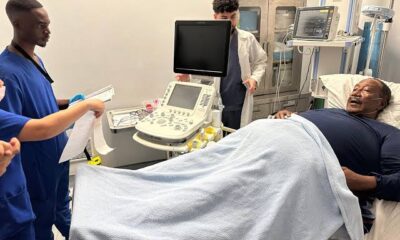

Again, Zambian court denies bail to ex-defence minister on medical grounds
A Zambian High Court has, again, denied bail to detained former Defence Minister, Geoffrey Bwalya Mwamba, who is seeking release...
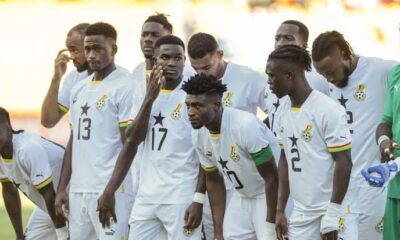

Ghanaians in tears as Black Stars fail to make AFCON 2025y
Ghanaians in tears as Black Stars fail to make AFCON 202 Football lovers in Ghana have been thrown into sadness...


Tinubu’s reforms in Nigeria not working— IMF
The International Monetary Fund (IMF) says the various reforms carried out by Nigerian President, Bola Tinubu, are not working for...


EU launches initiative to reintegrate over 417,661 out-of-school children in Nigeria
The European Union (EU) has launched an initiative to reintegrate over 417,661 out-of-school children in Nigeria, particularly in the northwestern...
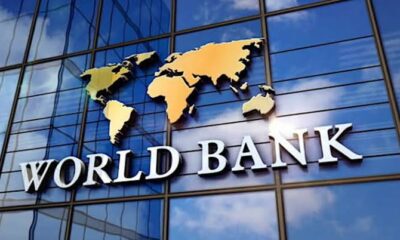

World Bank pledges $3b to support Zambia’s development goals
The World Bank Group has pledged to avail Zambia with approximately $3 billion to support the country’s development goals under...
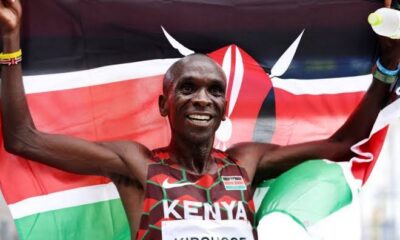

Kenyan marathon legend Kipchoge advises young athletes to prioritize success over money
Kenyan marathon legend, Eliud Kipchoge, has advised young athletes to place success ahead of quick money and riches. The former...


Tyla set to drop new single ‘Tears’ on November 20
South African “Ampiona” crooner, Tyla, is set to thrill her fans to her new single titled, “Tears’, which is set...


1,172 Nigerians killed, over 1,000 kidnapped in nine months— NHRC
The National Human Rights Commission (NHRC) has put the figures of Nigerians killed and kidnapped by non-state actors from January...


Bolt invests $107m in Nigeria to boost safety standards
Ride-hailing platform, Bolt, has announced an investment of $107 million in its bid to boost safety and service quality in...
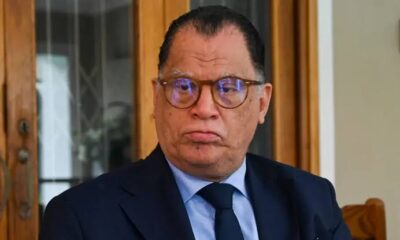

South Africa’s FA president Danny Jordaan arrested on fraud, theft allegations
The President of South African Football Association (SAFA), Danny Jordaan, has been arrested on allegations of fraud and theft. Jordaan,...
Trending
-

 Sports7 hours ago
Sports7 hours agoGhanaians in tears as Black Stars fail to make AFCON 2025y
-

 Metro1 day ago
Metro1 day agoEU launches initiative to reintegrate over 417,661 out-of-school children in Nigeria
-

 Metro9 hours ago
Metro9 hours agoTinubu’s reforms in Nigeria not working— IMF
-

 Metro5 hours ago
Metro5 hours agoAgain, Zambian court denies bail to ex-defence minister on medical grounds


